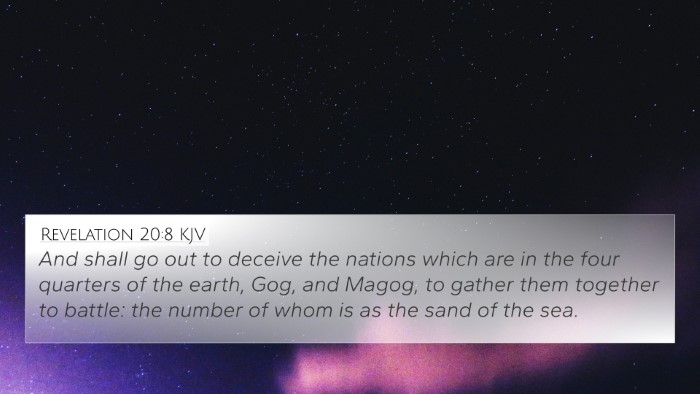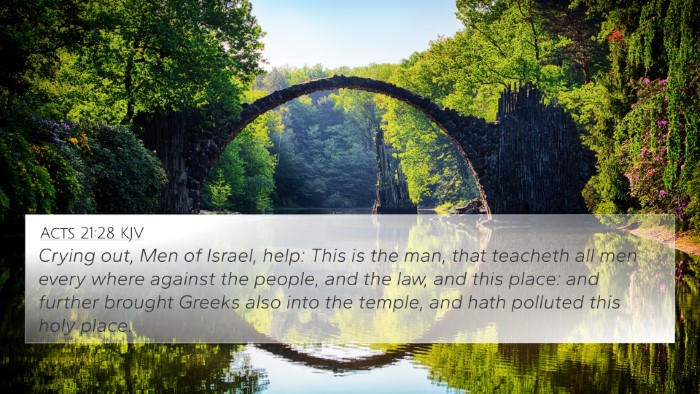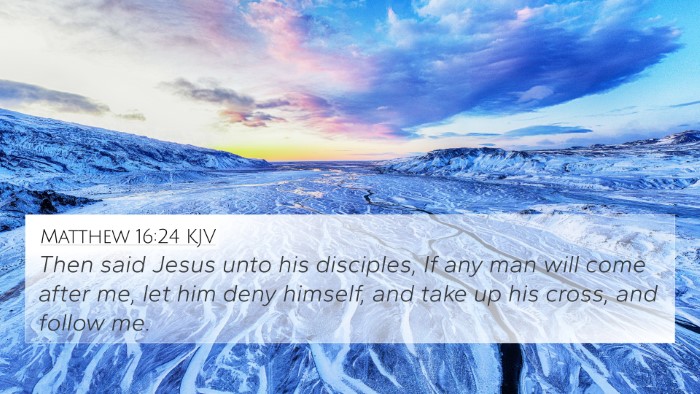Bible Verse Analysis and Interpretation: Joshua 10:4
Verse: "Come up unto me, and help me, that we may smite Gibeon: for it hath made peace with Joshua and with the children of Israel." - Joshua 10:4
Context and Overview
The context of Joshua 10:4 is situated in a time of warfare between the Israelites and the Canaanite city-states. Gibeon, having made a treaty with Joshua, becomes a target for the other kings of Canaan who see this alliance as a threat to their dominance. The verse indicates a call for aid against Gibeon's unexpected alliance with Israel.
Commentary Insights
Matthew Henry's Commentary
Matthew Henry highlights the strategic importance of Gibeon’s peace with Joshua as it challenged the existing order of alliances in Canaan. The call for help signifies the fears of the Canaanite kings and how they began to coordinate against a common foe. The request exemplifies the response of groups threatened by a strong collective enemy, demonstrating the turmoil of the lesser kingdoms in the face of Israel's growing influence.
Albert Barnes' Notes on the Bible
Albert Barnes notes that the Canaanite coalition feared losing power due to the advancing identity and strength of Israel. The urgency communicated in this verse indicates not only desperation but emphasizes how quickly alliances can transform into enmity based on shifting power dynamics. Barnes further reflects on the notion of seeing Gibeon as both an ally to Israel and a target for annihilation from others.
Adam Clarke's Commentary
Adam Clarke expands on the implications of Gibeon's peace with Israel, providing a socio-political framework for understanding ancient Near Eastern alliances. His interpretation emphasizes the prospects of Joshua's campaign and how Gibeon's subjugation was viewed complete with a backdrop of shifting allegiances within the Canaanite landscape. Clarke notes the inevitability of conflict in maintaining or breaking treaties, which resonates throughout Biblical accounts.
Bible Cross References
Joshua 10:4 finds connections with several other Bible verses that illuminate deeper thematic connections within the Scriptures:
- Joshua 9:15: The covenant made with Gibeon highlights the initial peace that becomes a point of contention.
- Joshua 10:6: Reinforces the urgency in Gibeon to seek protection by calling upon Israel.
- Psalm 83:5-8: Illustrates the theme of nations conspiring against God's chosen people.
- Ephesians 6:12: Reminds us of the spiritual battle believers face, paralleling the physical battles in Joshua's time.
- Numbers 14:9: Highlights the encouragement given by leaders to overcome fears in the face of powerful adversaries.
- Isaiah 54:17: Affirms that “no weapon formed against you shall prosper,” which finds resonance in Israel's eventual victory.
- Hebrews 11:30: Propels the discussion of faith in action regarding Israel’s conquests in the Promised Land.
Thematic Connections
This passage, alongside its cross-references, illustrates several prominent themes such as:
- Divine Protection: Gibeon's choice to ally with Israel offers insights into God’s protection over those who align with His people.
- Consequences of Alliances: The shifting allegiances depict how treaties can bring about both salvation and conflict.
- The Power of Unity: The coalitions formed by the Canaanite kings demonstrate a call for unity among adversaries against a common threat.
Conclusion
The urgency in Joshua 10:4 reflects complex ancient Near Eastern dynamics where alliances bear heavy significance. Understanding the implications of this verse is enriched by exploring its related scriptures, showcasing how Scripture provides multifaceted insights into the historical and spiritual contexts of God’s people. The connections established through cross-referencing unite narratives, themes, and lessons that continue to resonate in the life of faith today.
Tools for Further Study
For those seeking a deeper engagement with biblical texts and themes, several resources can enhance study:
- Bible Concordances: Help in locating verses related to specific themes.
- Cross-reference Bible Guides: Offer clear pathways between related scriptures.
- Bible Reference Resources: Enable comparative studies across texts.
- Bible Chain References: Simplify the process of connecting themes and narratives.
















